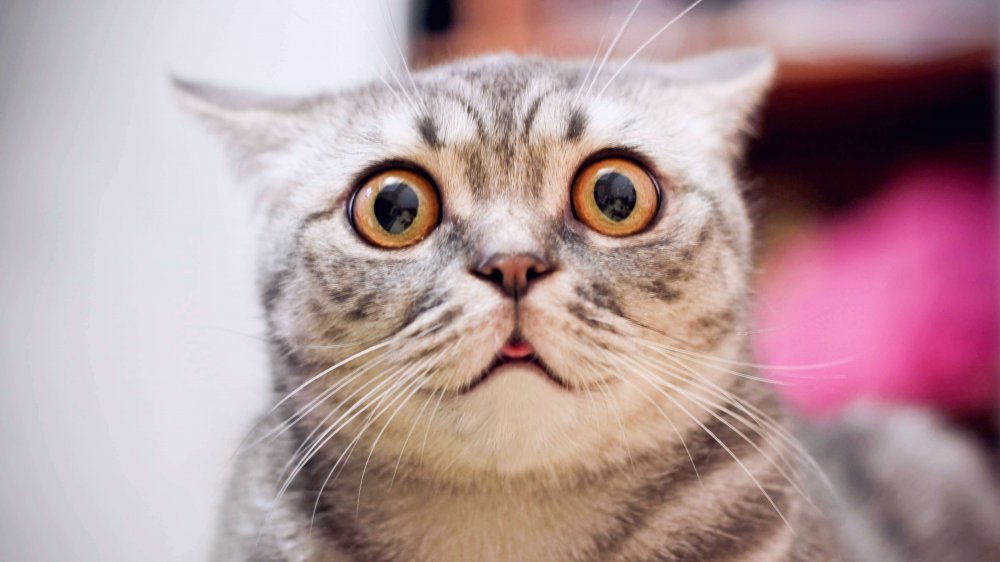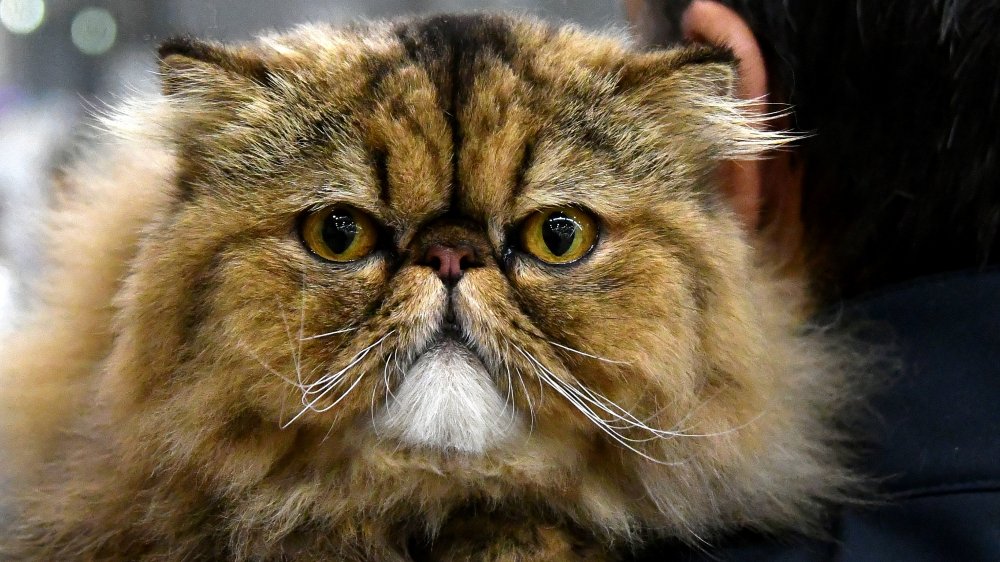The Most Independent Cat Breed In The World
For a lot of people, it's nice to feel needed. Just not too needed. Maybe instead of having a significant other who showers you with hugs and kisses like it's the rainy season for romance, you prefer a lover who gags when you hug them and asks you to stop because you filled the two-hug quota for the week. Maybe instead of holding hands, you don't want to touch them with a 39-and-a-half-foot pole, not because you're a mean one but because you like having your space and lots of it. And you like cats.
If that sounds like you, and you're looking for a feline, you might want to choose one that wants little to do with you unless it's licking your tear-soaked face as you weep a Niagara of agony in the lowest moment of your existence. Immediately, that rules out any cat that acts like a dog, including and especially Maine Coons, which will stick to you like love glue and treat you like you matter in this cold, pointless world. No, instead, you want a feline that doesn't necessarily require your constant loving attention and affection — what some might call an "independent" cat. So which breed is right for you?
A cat that doesn't need you
Admittedly, measuring and comparing independence across cats isn't an exact science and possibly not a science at all. Weird. But since we're attributing human personality traits to felines, maybe useful criteria can be gleaned from psychology, specifically attachment theory. Pioneered by British psychologist John Bowlby, via Very Well Mind, attachment theory examines how a caregiver's attentiveness to a child's needs impacts how that child's ability to bond with the caregiver and the form that this bond, or attachment, takes. According to Science News, a 2019 study in the journal Current Biology suggests that cats have attachment styles similar to those observed in humans.
Following this train of logic, what you want is avoidant attachment, which is when your child/cat avoids your presence like a cold shoulder shirks warmth. In children, avoidant attachment might occur through neglect, so adopting a shelter kitty or rescuing a stray might provide you with a more independent feline. In the event you are actively seeking a breed that seems to have a particular predisposition towards independence, Kitten Toob lists 10 breeds that are said to exhibit these sort of traits. Among them are the British short hair, Russian Blue, Ragdoll and Persian varieties. While there appears to be no real ranking system among these, Purina doubles down on all the aforementioned breeds, pointing to the likelihood of these breeds being more content to do their own thing and keep themselves busy — or just watch you, silently judging your every move.

